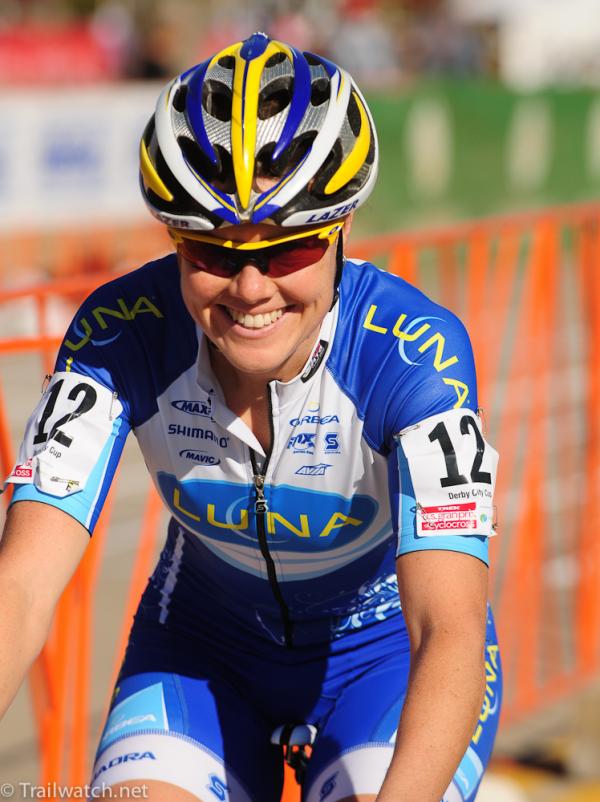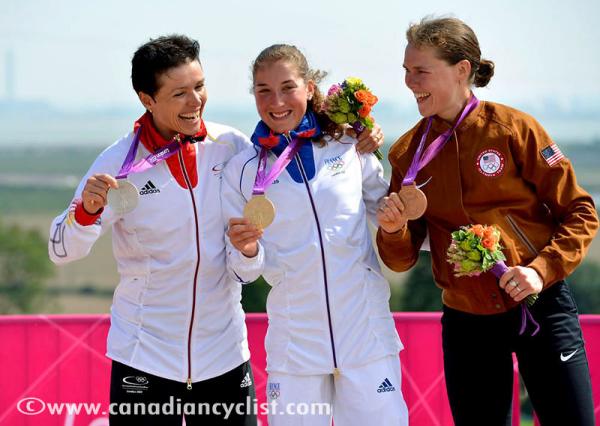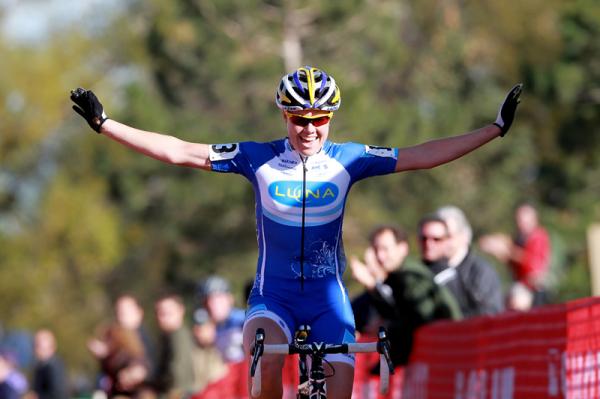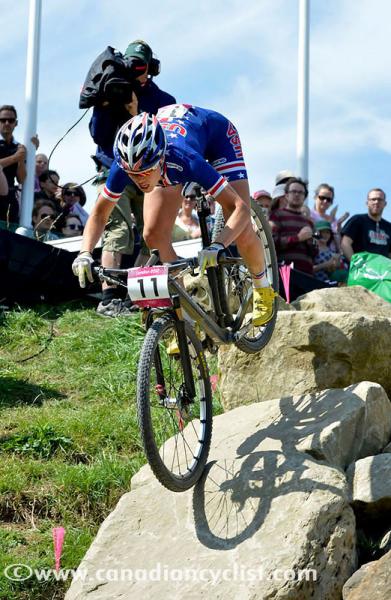Women's cycling moving in right direction, says Gould
UCI Athletes' Commission member details proposals from recent meeting




London Olympics bronze medalist Georgia Gould said after returning from last week's UCI Athletes' Commission that the state of women's cycling is good and getting better.
Although there is much work to be done, Gould said, women's cycling is currently riding a wave of momentum that has seen great strides over the last several seasons. The UCI's decision to offer equal prize money at the world championships, and USA Cycling's professionalization of the women's national championships, which next season will run in conjunction with the men's, are just two examples.
"Things are moving in the right direction," said Gould, who races in both mountain bike and cyclo-cross disciplines for the Luna Pro Team. "And it doesn't seem like, from everyone I've talked to, that there is much standing in the way of some pretty simple changes."
One of the major changes Gould and the Athletes' Commission endorsed is a UCI rule mandating that prize lists for all women's events should be equivalent to those for men's races. Gould sees that as a crucial step in improving the opportunities for women who want to have a professional career in cycling, and she believes the example set by promoters in the US cyclo-cross scene has gotten the UCI's attention.
"The US promoters have just blown me away in stepping up and offering equal prize money even when they didn't have to," Gould said. "I think you really see it paying off, too. You see how North American cyclo-cross races have just gotten more and more competitive internationally. And you're seeing more and more – particularly this year – a lot of European women racing 'cross in the US. They're like, 'Hey, these people appreciate us and they pay out equal prize money. The crowds come out to watch the women.' And I think the UCI see that it's really growing in the US. So those are all [promoters] who really didn't have to do it, but it really helped to turn the tide."
The Athletes' Commission also called on UCI WorldTour teams to invest in women's squads and for the organizers of men's events to also offer races for women. Gould likened the call for mandatory gender equality in cycling to Title IX, the 1972 US law that requires federally funded schools to offer women the same athletic opportunities offered to men.
"Before Title IX, people would say, 'Oh, women don't play sports, women don't do sports in school. Why should we spend money on this?' But you make it a law and people are forced to spend money on it," Gould said. "And then all of the sudden you have the London 2012 Olympics, where the US women won more medals than the men."
The latest race content, interviews, features, reviews and expert buying guides, direct to your inbox!
Gould also suggested that the UCI, which she says often gets a bad rap because of its own missteps in communication, should take a larger role in promoting women's cycling by communicating more about it. And she suggested the media do a better job of telling the stories of women's cycling.
"Often times in the media when they cover a race there are seven paragraphs about the men's race – blow by blow – and for the women's race it just says 'So and so beat so and so.' Well, that sounds awesome," Gould said wryly. "So I think there's room for improvement with that kid of stuff, too."
Exposure breeds familiarity and interest, Gould said, and better coverage of women's World Cup events is key. She pointed to Red Bull's mountain bike World Cup coverage as an example that should be emulated for women's road racing.
"Once people know the story, then they can be interested in it," Gould said. "But when you don't know the players and you don't know the past, if you don't know what the battles have been, then it's not as interesting. When you know the history and know a little bit about the people who are racing, then you can pick who your favorite is and cheer for them."
The Athletes' Commission, which was inaugurated in 2011, is comprised of 15 members representing road, track, mountain bike, cyclo-cross and para-cycling. The commission meets once a year and makes recommendations to the UCI, although it has no executive power. Gould said one of the recommendations coming from this year's meeting is that athletes should have representation on every UCI commission.
"I don't think that's been a requirement, and I think that needs to change," Gould said, reflecting the consensus of the other members. "There needs to be at least one athlete on every commission to be the voice of the athletes."
UCI president Pat McQuaid has said there will be a seat on the management commission of the UCI for a representative from the Athletes' Commission once the group gets more established. In the meantime, Gould will concentrate on doing what she can do to keep the momentum she sees for women's cycling moving along.
"The state of women's racing right now is definitely getting better for us, so hopefully that will continue," said Gould, who added that although she enjoys being a role model for young girls, she really gets a kick out of inspiring her young male fans. "It's been really cool for me, being able to be a role model for little boys. When there are little boys who send me an email or send me a picture they drew, to me that is so awesome because that's just one more step in changing that gender equity in general."
Growing up in Missoula, Montana, Pat competed in his first bike race in 1985 at Flathead Lake. He studied English and journalism at the University of Oregon and has covered North American cycling extensively since 2009, as well as racing and teams in Europe and South America. Pat currently lives in the US outside of Portland, Oregon, with his imaginary dog Rusty.